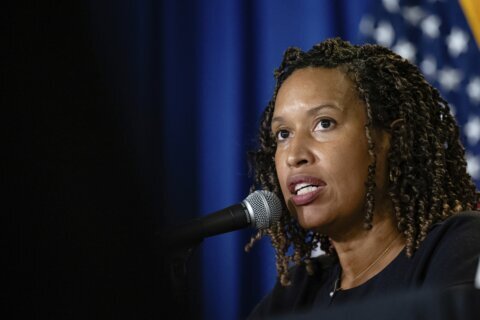Is legalizing cannabis sales the way to a better D.C.? Mayor Muriel Bowser thinks it may be.
She’s proposed the Safe Cannabis Sales Act of 2021.
Under the legislation, cannabis sales would be limited to those 21 and older, and be taxed at 17%.
Tax revenue from cannabis sales would be put back into the low income communities of color she said have been disproportionately harmed by the criminalization of cannabis.
“This is about safety, equity, and justice,” Bowser said in a news release. “Through this legislation, we can fulfill the will of D.C. voters, reduce barriers for entering the cannabis industry, and invest in programs that serve residents and neighborhoods hardest hit by the criminalization of marijuana.”
If the legislation passes this year, sales of adult-use cannabis could begin by Oct. 1, 2022.
Key provisions of the Safe Cannabis Sales Act of 2021, as outlined by the mayor:
Address Past Harms
- Requires automatic expungement of records for certain cannabis convictions.
- Reinvests cannabis sales tax revenue into targeted wards and programs to benefit those who have been disproportionately harmed by the criminalization of cannabis.
There would be $1M in FY23 and $2M in FY24 and subsequent years in startup assistance — financial and technical — for social equity applicants and returning citizens. There would be an additional $500K to the Aspire to Entrepreneurship Program for returning citizens.
Reduce Barriers
- Allows all returning citizens and D.C. residents with a criminal background to obtain a worker’s or manager’s license to work at a cannabis business.
- Allows all returning citizens and D.C. residents with cannabis convictions to own a cannabis business.
Enhance Public Health and Safety
- Creates a safe, legal marketplace, not concentrated in any one part of the city, where cannabis will not be cross-sold with more dangerous drugs, and driving down the demand for illegal drugs which causes violence in D.C. neighborhoods.
- Requires all cannabis sold to be tested by an independent testing facility, within 60-days following an independent testing facility being licensed in D.C. Cannabis and cannabis products would be tested for contaminants and potency.
- Extricates guns from the industry by prohibiting them in cannabis facilities.
Implements stringent advertising, branding, and product placement rules and regulations to minimize exposing minors to cannabis.
Create Pathways to Middle Class
- Expands job and business opportunities for DC residents by requiring at least 60% of licensed employees and owners of each license be DC residents.
- Awards preference points for certain cannabis business applications for returning citizens or D.C. residents arrested or convicted of a cannabis offense or to a cannabis certified business enterprise or veteran owned business enterprises.
- Creates a microbusiness license to allow small businesses to enter the cannabis market.
Creates a cannabis third party social equity delivery license for social equity applicants who would have exclusive rights to conduct deliveries for on-premises retailers and microbusiness for the first two years.
The plan is for $500K in business development support for microbusinesses, including non-cannabis businesses, with five or fewer employees located in Wards 7/8 whose residents of those wards comprise 50%+ of the ownership.
Invests in D.C. Residents
- Directs additional funds to programs serving persons and neighborhoods most harmed by cannabis prohibition.
- $1M in FY23 and $2M in FY24 and subsequent years to award grants to locally disadvantaged certified business enterprises to open/expand sit-down restaurants in Wards 7/8.
- $250K in FY23/$500K in FY24 and subsequent years for the Healthy Food Retail Program to provide grant support for small grocery stores in Wards 7/8.
- $3M in FY23 and $6M in FY24 and subsequent years for school supplies, equipment, and after-school sports and activities for students attending public schools in Wards 5/7/8.
Additional funds toward low income or affordable housing programs and initiatives.








